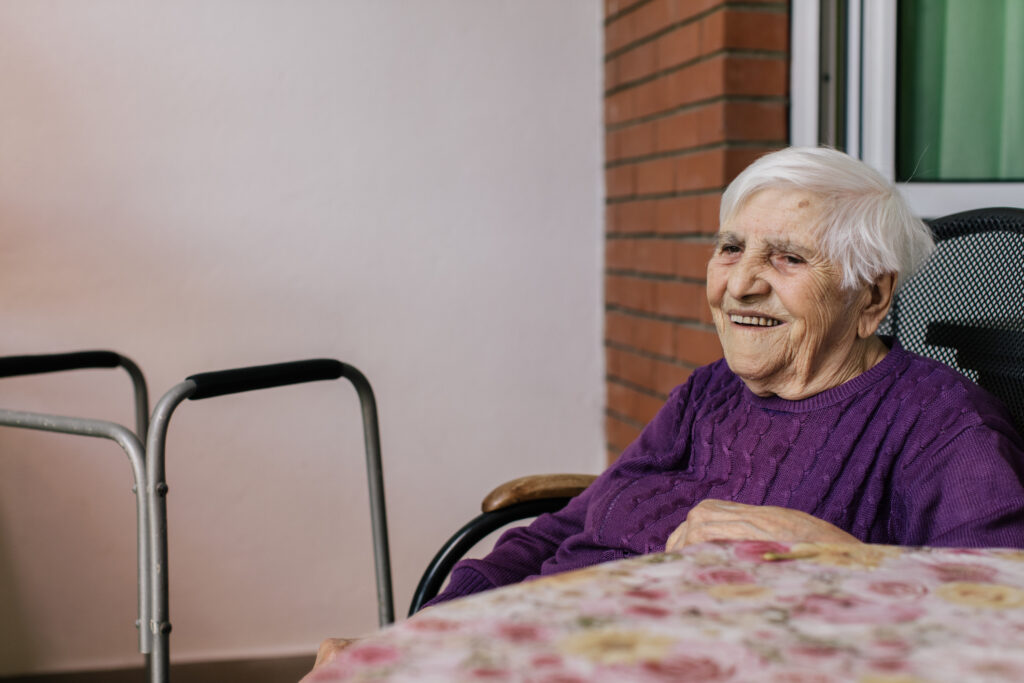
A Managing Director’s perspective: using loan finance to reduce risk
Housing charity Chrysalis is working to reduce its reliance on leased properties by increasing its property ownership. A £666,000 loan has enabled Chrysalis to refinance one property and purchase another.
Chrysalis provides specialist supported housing to a range of people, including those working to overcome drug and alcohol abuse. Here, Maxine Gall, Managing Director at Chrysalis, explains why she feels it’s so important to reduce the charity’s reliance on leased properties, and her experience of taking out a loan with social sector specialist Charity Bank.
Why did you decide to extend your property portfolio?
We’ve operated a primarily lease-based model for the last 20 years. We take on a 25-year lease for most of our properties. The model has received quite a bit of negativity in recent years due to the risk associated with long term leases. We want to diversify to mitigate any risk. Purchasing our own properties helps us to offset our exposure to the lease-based model.
How is your Charity Bank refinance loan helping that goal?
We invested surplus funds in 2019 to develop a scheme for vulnerable adults recovering from drug and alcohol addiction. We were leasing a property from a private landlord, so we terminated the lease and sourced a new property to buy.
A huge chunk of our reserves was then tied up in that property. We wanted the security of having a healthy amount of reserves, and also needed funds to reinvest in more schemes. So we refinanced to release a proportion of that money.
The loan also enabled us to source another new property. This time, we were able to buy one that we were already renting.
We’re gaining assets and our loan repayments are less than the rent we were paying previously.
Could you have bought the second property without a loan?
We could have, but we didn’t want to use all of our surplus funds.
Did the loan help you to get grant funding?
No. We don’t get grants. There are no government grants for us smaller providers.
Why did you choose Charity Bank for your refinance loan?
We’re an exempt charity. We wanted to reach out to other organisations with the same principles and values. We do struggle with mainstream banks as they don’t understand our operating model or the kind of charity we are. I found Charity Bank really good to work with as they’re very knowledgeable and supportive. They provided us with a lot of guidance on what they needed from us and why, even down to exactly what we’d need in our board resolution. We wouldn’t have got that level of service anywhere else.
How did you find the process of applying for the loan?
It was quite complex to start with, but that’s the nature of the beast. I’ve not done anything like this before and there was a lot to be done. The information pack was very thorough. It detailed the whole process and included a useful checklist. The process took a bit longer than expected but it’s difficult to align legal teams and so on.
Was it useful having a specific person you could call on?
Yes definitely. We spoke a lot to our regional manager, Jeremy Ince, and Sue Potter was always there if we needed clarification on anything. They were both really responsive and explained legal documents in understandable language.
Are both properties for people with a drug or alcohol addiction?
Yes. The first is a shared house. The second has four self-contained flats. When people first come to us, they’ve been abstinent for at least six weeks and need the support of shared accommodation. There’s no time limit on how long they can stay, but it’s normally one to two years. Once they’re ready for more independence, they can move into one of the flats before eventually moving into their own property.
Our properties are all fitted out to a high standard. You’d be happy to live in one yourself. We have to show people that they’re worth more than they think they are.
Take the property that we refinanced. On the day everyone moved in, I overheard one of the girls crying on her phone, saying that she didn’t think she’d ever deserve to live anywhere so beautiful.
What additional support do you offer the tenants?
We provide group therapy once a week. We encourage them to have open honest communication and we help them to address behaviours and thoughts that they might struggle with, e.g., self-worth. They also have one-to-one therapy for an hour a week. It’s person specific. We create a safe space where they can share feelings and concerns. They’ve committed to turning their life around and we work with them intensively to keep them on track.
All tenants are visited every week. In the shared house, there are strict rules regarding household duties, guests staying over and so on. In the flats, tenants are responsible for their own space, but we check they’re looking after the flat and themselves. Our aim is to help them to move towards independence.
What are you most proud of when you reflect on how far Chrysalis has come?
Well, we’ve defied all challenges since we were founded in 2002 – funding being pulled, legislation constantly changing etc. We’ve grown steadily and now have around 300 units supporting a whole range of vulnerable adults – people with learning difficulties, brain injuries. mental health problems, physical difficulties and so on, along with people coming out of secure units or tackling addiction.
We’re giving them support to live independently, rather than being housed in hospitals and institutions. They’re living with friends, getting jobs, going to college and taking part in society. In all of our properties, everything we do is about bettering the lives of vulnerable people and giving them as much independence as possible.
We recently worked with a local authority in Essex to deliver a three-bed bungalow for non-communicative people. Within a couple of months, one called his brother by name. Having a home fit for purpose has such an impact on people’s wellbeing.
What’s next for Chrysalis?
We want steady growth. We used to have 27 properties for adults with drug and alcohol addiction. They were heavily funded by support contracts and those diminished, so we had to decommission the schemes. The demand is greater than ever and our model is different now – we’re not as reliant on support contracts – so we’re looking to grow again.
We work with a variety of property developers and have planned developments across the county. We work closely with local authorities, delivering specialised supported housing schemes in line with their demand.
If you’re looking to grow your organisation’s property assets and require finance, please call Charity Bank on 01732 441919.
About Charity Bank
Charity Bank is the loans and savings bank owned by and committed to supporting the social sector. Since 2002, we have used our savers’ money to make more than 1400 loans totalling over £605m to housing, education, social care, community and other social purpose organisations.
Nothing in this article constitutes an invitation to engage in investment activity nor is it advice or a recommendation and professional advice should be taken before any course of action is pursued.


